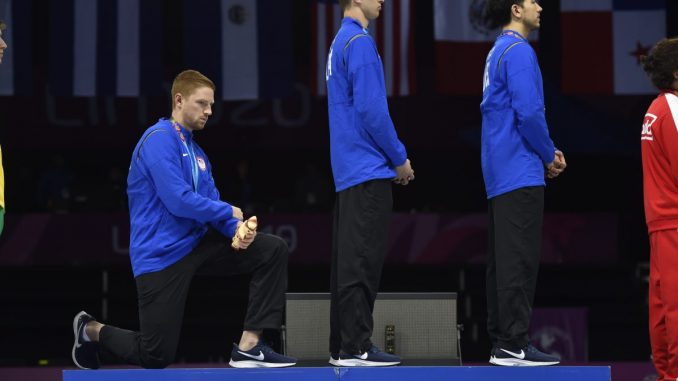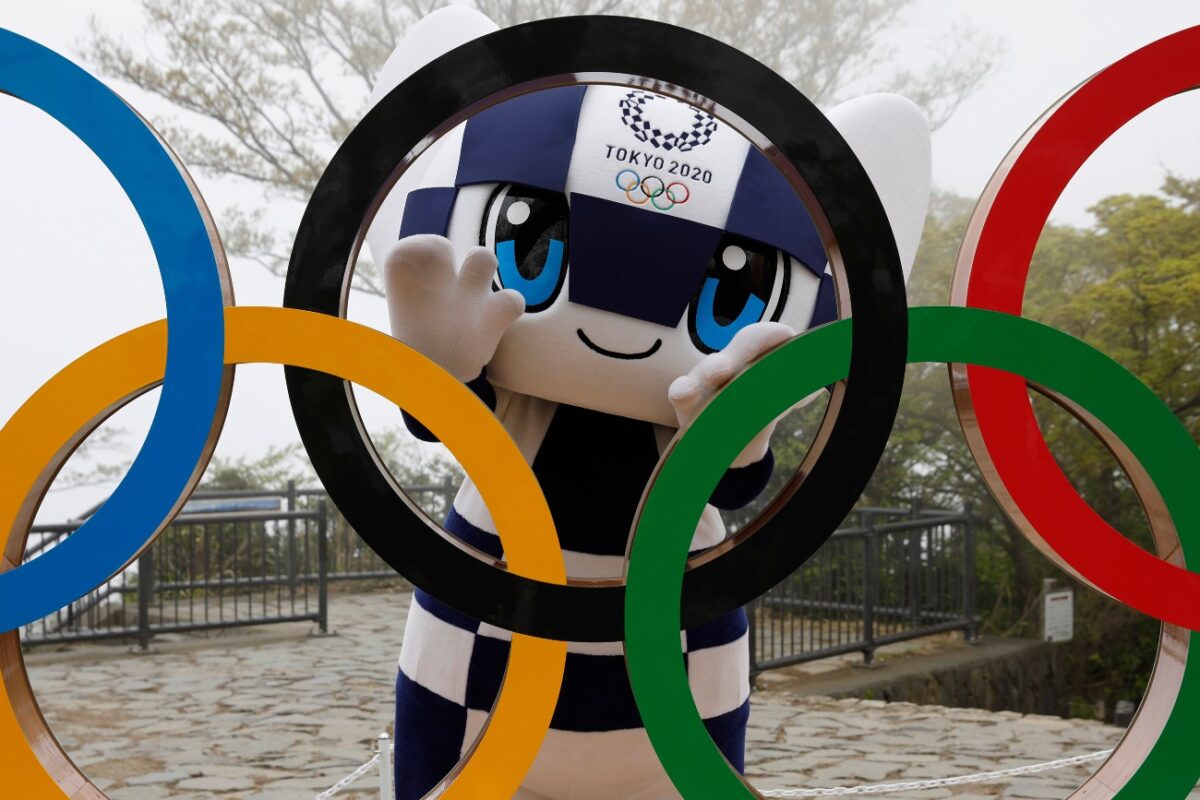
Athletes who try protesting by kneeling or raising a fist at official Olympic sites will face punitive measures, the International Olympic Committee (IOC) announced this week.
The Olympic Charter already says that any kind of demonstration or political, religious, or racial propaganda is barred in any Olympic sites, venues, or other areas. But athletes from America and other countries began kneeling protests in recent years, inspired by sports players in the United States.
The IOC Athletes’ Commission examined the matter and found that roughly seven out of 10 athletes of nearly 3,500 polled feel it is not appropriate to demonstrate at Olympic events.
“The quantitative and qualitative findings indicate that the majority of athletes want to protect the field of play, official ceremonies, and [the] podium,” a commission report states (pdf).
Any “protests and demonstrations or acts perceived as such” should not be allowed in those venues, Kirsty Coventry, head of the commission, said in a virtual briefing on Wednesday.
Slogans like “black lives matter” also are not allowed.
The commission recommended the IOC provide clarity on the punishment athletes who violate the charter will face. Violations are examined on a case-by-case basis.
The report was full of recommendations, all of which were approved by the IOC Executive Board.
Coventry said that athletes will be punished if they choose to defy the rules and protest anyways.

The U.S. Olympic and Paralympic Committee told athletes last month that they would not be punished for raising their fist or kneeling while accepting medals in Tokyo, as long as they were taking part in so-called racial and social justice demonstrations.
The committee defines a racial and social justice demonstration as one “specifically aimed at promoting the human dignity of individuals or groups that have historically been underrepresented, minoritized, or marginalized in their respective societal context,” such as advocating for equal rights for black people.
The committee did not respond to a request for comment.
The World Players Association, an athlete union, said it would back any athletes that choose to violate the rules. The union said the commission’s survey was flawed.
Coventry expressed that as a former Olympian herself, the podium, field of play, and ceremonies hold a special place in her heart.
“So if I think about when I was competing, I wouldn’t want something to distract and take away from that,” she said.
The commission also recommended incorporating messaging like solidarity and inclusion into the Olympic Village branding, altering the Olympic Oath to similar messaging, and increase athletes’ expression on various issues outside the games.
The Tokyo Olympics are set to start on July 25.
IOC President Thomas Bach told reporters during the briefing he is confident the games will probably not have problems with COVID-19, in part because he expects many athletes to have gotten vaccines against the CCP (Chinese Communist Party) virus, which causes it.
“We are undertaking all the right efforts to minimize the risk, as much as you can minimize the risk in such a situation,” he said.






Be the first to comment